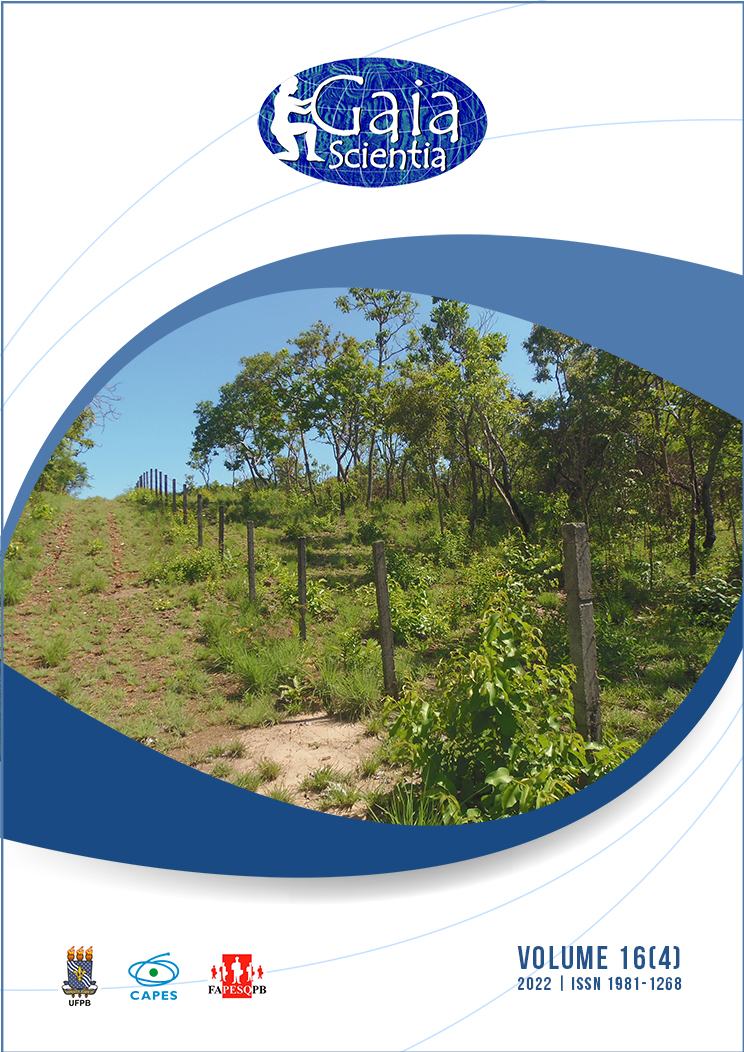Potencialidades da pesca do robalo Centropomus undecimalis (Bloch 1792) na costa oriental maranhense de acordo com o conhecimento ecológico local de pescadores e comerciantes
DOI:
https://doi.org/10.22478/ufpb.1981-1268.2022v16n4.64857Resumo
O litoral oriental do Maranhão possui uma diversidade de recursos pesqueiros que vêm sendo muito explorados nos últimos anos. Associado a atividade pesqueira, a sabedoria tradicional de pescadores e comerciantes sobre a ictiofauna local torna-se fundamental para o estabelecimento de medidas de conservação e sustentabilidade da pesca a longo prazo. Nesse contexto, o presente estudo objetivou verificar o conhecimento ecológico dos pescadores e comerciantes acerca das potencialidades de pesca do robalo Centropomus undecimalis no município de Tutóia, estado do Maranhão. Para o desenvolvimento desta pesquisa foram realizadas entrevistas com pescadores e comerciantes da região de estudo, por meio da aplicação de questionários semiestruturados que continham perguntas abertas. Considerou-se nas entrevistas aspectos cognitivos referentes aos aspectos gerais da pesca e das potencialidades do robalo, além de aspectos sobre sua dinâmica e reprodução. Os resultados revelaram que o conhecimento ecológico dos pescadores e comerciantes se constitui como uma valiosa ferramenta adquirida ao longo dos anos e transferida entre as gerações, a pesquisa revelou ainda, que os entrevistados indicaram que o robalo tem respectivamente potencial para pesca comercial, esportiva e para o cultivo.










